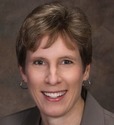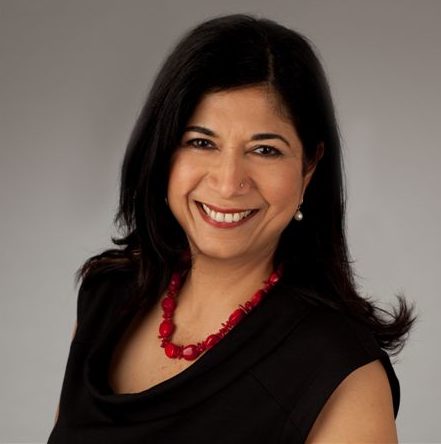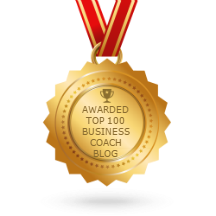 Jane Kise, Ed. D., principal of Differentiated Coaching Associates, LLC, is a consultant and author of over 20 books, with extensive experience in the fields of executive coaching, educational consulting, strategic planning, team building, employer/employee relations, and finance. She enjoys helping individuals and teams reach their full potential, providing them with practical tools and theoretical models to successfully continue the processes on their own.
Jane Kise, Ed. D., principal of Differentiated Coaching Associates, LLC, is a consultant and author of over 20 books, with extensive experience in the fields of executive coaching, educational consulting, strategic planning, team building, employer/employee relations, and finance. She enjoys helping individuals and teams reach their full potential, providing them with practical tools and theoretical models to successfully continue the processes on their own.
Jane will be one of the Keynote Speakers at the NZ Type Conference in July.
Here’s my recent interview with her:
1) You have been in this field longer than most, what are some trends you have witnessed in the last few decades on the use of personality type and coaching?
I think one of the most positive trends is integration of personality type with other frameworks, tools or theories. Type provides a general framework for exploring patterns in strengths, corresponding difficulties, and pathways for development. Tools such as emotional intelligence or reversal theory help coaches tailor these patterns and recommendations for individuals.
2) What contribution does knowledge of personality type make for coaches working in the leadership development area?
Leaders often have a difficult time listening to criticism of their style. After all, they argue, their style got them where they are! Using type often helps them see how people with different type preferences might misunderstand communications, misjudge decisions, or mistake feedback or recognition for criticism or false sincerity. While certain leadership behaviors truly are detrimental, many others simply need polishing so that they are perceived and received as intended.
3).What advice would you give to a client who wants to use the knowledge on personality type as a way to maximise their area of development e.g., life, business, organisation, employee engagement, impact on the world?
First and foremost, we need to identify their motivation for changing, whether they are trying to improve their careers, personal relationships, or sense of purpose. Change is hard, hard work, and while the economic unease of, “My boss says I have to ___ to gain promotion” may be sufficient for the short term, if that promotion isn’t really in line with long-term goals, that motivation will fade quickly. Society keeps insisting that money is the big motivator, but once we reach a certain level of financial security (and that level is a lot lower for a majority of us than anyone suspects!), it doesn’t work anymore. Not everyone wants to save the world or amass a fortune—and people can use the patterns revealed by type research to think about how they themselves might determine success. Understanding their unique sources of motivation will bring energy to the journey.
4) Do you see a gap between having knowledge of personality type and the application of this? What do you see as enablers in keeping applying the knowledge?
No matter how much type knowledge I have, each client is still an individual, with past experiences, current environment, education, family and cultural factors that, as the saying goes, makes them just like everyone else of their type and like no one else of their type. We need to be wary of generalizing from what we know of a person’s type—and there’s a danger in too much type knowledge of missing the individual nuances because we aren’t aware of the mental models type has solidified in our brain. I’ve heard practitioners with years of experience say things like, “Well, you don’t really think a marriage between an ISFP and an ENTJ could really work, do you?” or “How could an INTP be a spiritual director? I mean, really!” or “I would never place an ISFJ in research and development because they just plain lack the creativity.” These are stereotypes of these types as they might appear before engaging in the lifelong work of type development, or, worse, ignorant of the powerful motivation for development that purposes or goals or missions can be. In a way, one of the creators of the MBTI, Isabel Myers, is our “poster child” for this. With her INFP preferences, someone with a rigid mental model of these preferences might have recommended, “Stay away from statistical work. You aren’t good with details.” In fact, her drive to create a tool that would give others access to the rich theory that she loved motivated her to become a master statistician. By hand, and then with a calculator, she created two forms of statistical analysis that no one else used until supercomputers were available. We need to ensure our knowledge of type is used to open doors, not limit a person’s future.
5) What has been a major or surprise learning in your journey of personality types?
I hope I never ceased to be amazed—and thankful—for the understanding it can bring among conflicting groups. I’ve been called into some horrid situations, where employees are sure their boss is downright evil, and the boss has dismissed the employees as lazy and incompetent. Type truly has helped them get onto the path of constructive use of differences. When used ethically and with care, type works!
6) What is keeping you interested and engaged in your work currently?
Most of my work these days is with educators—both school leaders and teachers. In the United States, the “reforms” of the past decade has resulted in classrooms where I would have been incredibly unhappy as a student myself. I talk to more and more educators my age who are thankful that their children have finished public education and who really wonder if they would have kept them in the very schools they attended if they were to enroll now! I have seen type training transform classrooms and motivate students. As an INFJ, my goal is of course broad—gathering evidence of how type creates motivated, persistent problem-solvers and life-long learners and then using that evidence to stop the educational battles and do what is best for children.
7) What are you planning to present to your NZ audience at the Type Conference in July?
My presentation “Coaching for the World Cup of Life” will focus on my most current research on what success means to people with different type preferences and how this affects the coaching process. Again, I see motivation as the starting place for personal growth, but too many people are being misled by society’s definition of success, which may or may not be true for them. I’ll also be giving a talk on the top 10 lessons I’ve learned from 20 years as a type practitioner.
8) What makes a great leader?
Well, there are at least 16 types of great leaders! I usually coach leaders within the context of specific organizations or teams. Situating how they need to lead involves first understanding their strengths, whatever those may be. Not leading from strengths is a quick path to burnout. Then, it’s understanding what else the team needs to be effective—where they need to adjust their styles or share leadership roles for the greatest positive impact.
9) How can knowledge of type add value in the future given the impact of technology?
I think the biggest thing type can add is balance. Technology is a tool, not the answer to life, the universe, and everything in it. I hear lots about virtual classrooms replacing brick and mortar schools, for example—well, what about the Extraverted students who need live interaction, not passive screen time even if it involves “chatting”? There are similar implications for virtual teams. Type can help us balance the drive for efficiency with the drive for human needs.
For more information on registeration for the conference, visit – www.nzapt.org.nz or contact Jean de Bruyne – jean@qedservices.co.nz.
Jasbindar Singh is a coaching psychologist, leadership coach, author and speaker who loves creating shifts for people. www.sqconsulting.co.nz






 Follow Jasbindar on Twitter
Follow Jasbindar on Twitter




3 Responses to Jane Kise on Type, Coaching and Leadership